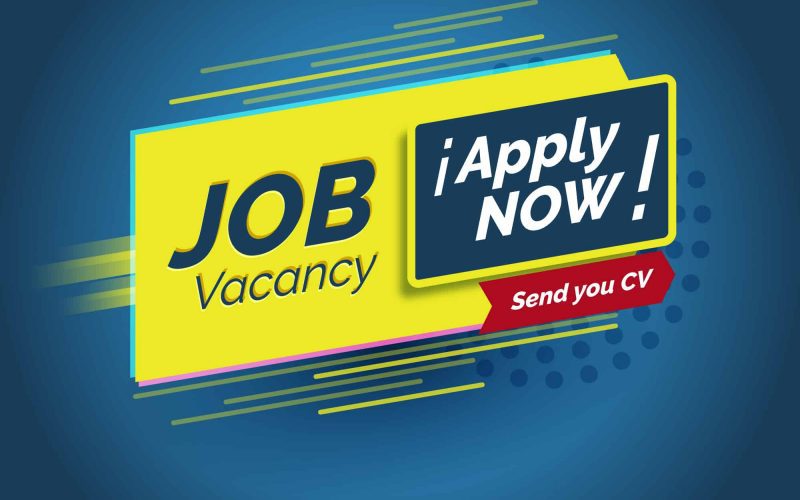Are you one of those seeking employment abroad? The world’s second-largest country is a destination booming with opportunities. You can start fresh in a new fantastic society with so much potential for everyone. The challenge, however, is how to get a job over there before stepping your feet into the country.
There’s a lot of information and disinformation on migration and employment in Canada because of the huge interest these topics generate in the public. If you’re searching for precise and trustworthy information on how to get that dream Canadian job, I assure you you’re in the right place.
This post will give you much-needed clarity on :
- Whether or not you need a job offer in Canada before you can get a work permit
- The requirements needed for different classes of workers to be able to find jobs in Canada from outside.
- How to find a Job in Canada before you get there
- Much more exciting information about getting jobs in Canada.
Work Permit and Visa
If you intend to migrate to Canada from elsewhere, it is always Paramount that you find employment there before you move, whether for permanent residence or if you are looking to benefit from a work permit program.
There are many steps to getting a Canadian visa. One of them is for you to show that a Canadian employer is willing to offer you a job in the country. So you have to ensure you secure a job contract from an employer.
You can easily apply for a work permit or permanent residence in Canada with your job offer and contract. Companies send an LMIA together with a working contract to you to recruit you.
Finding employment in Canada from outside can be difficult due to stiff competition. There is always an ever-increasing number of applicants from abroad seeking jobs and work permits in the country.
With the right techniques and methods, you should be able to get a suitable contract and keep yourself on course to getting that visa or work permit you desperately need.
What You Need To Do To Ensure You Get Picked
Each day rises to thousands of applicants seeking Canadian jobs. This makes it hard for you to stand out from the many applicants seeking to escape economic difficulty at home to greener opportunities abroad.
However, it is not an impossible task, so you have no cause to despair. There are things you could do that will make you unique from the many and give you a better chance at succeeding. You need to know the correct tactics to apply.
It’s not just enough to create accounts and post your credentials on several job-hunting websites, nor is it the best course of action. Everyone does that. You will have to take more active approaches to survive the competitiveness.
Here are things you need to do to stand out and get a Canadian job from abroad with as much ease as possible.
Taking an IELTS
Almost all permanent residency programs in Canada need you to take the IELTS if you are seeking a job offer to apply for such a program. However, it is also possible for you to receive a job offer without having to write the test. A permanent residency application later on, however, will mean you must take the IELTS.
You can get a job offer or apply for a work visa without taking the test. This is if your skill/occupation level is graded “D” in the case of a Canadian work permit. That is for labour work class people. Even those who are applying for a level “D” job are advised to take an IELTS still to boost their chances of getting other jobs.
IELTS is required to employ those within skill levels of O, A, B, or C. This applies to those applying for a work permit through permanent residency or the temporary foreign worker program.
Levels of skills or categories of occupations in Canada have been categorized into five skill/occupation levels. They are O, A, B, C, and D. The different skill levels have different requirements.
- Grade “0” is for those who are taking on managerial positions
- Grade “A” is for professionals with qualifying degrees
- Grade “B” those in this category are those applying for technical and skill-based positions
- Grade “C” requires just a high school certificate or a training certificate. They are service positions
- Grade “D”, as earlier stated, is labour-intensive jobs
See Also: How To Immigrate To Canada Without a Job Offer
The Canadian immigration system picks up your skill level and its code after you enter the name or description of your occupation.
The system will also let you know the responsibilities and qualifications you need to qualify for work in Canada at an occupational level. You will also see the right programs you could apply for and the credentials you will need going forward.
Credentials Needed To Find Work In Canada
Based on your skill or occupational level, there are varying qualifications that might be required of you for work in Canada.
Some jobs could require you to have a specific educational qualification or work experience, as the case may be. There are also many opportunities for freshers to find jobs that don’t require you to have years of experience.
It all depends on your skill and occupational category. For those under category “D”, it is possible to get a job without educational qualifications or experience; this is because they will receive training on the job once they start work. However, the chances for those applying without qualifications or experience are meager. Examples of level D workers include fruit pickers, cleaners, and others. You also don’t need an IELTS to apply for a work visa under this category.
For level C workers, these are semi-skilled occupations. A high school diploma or other low-level training is required under this category, including drivers, bartenders, etc. IELTS is compulsory for this level.
Level B is the professional level of work. Here you will need a minimum of a technical diploma. Jobs under this category of workers are plumbers, chefs and others. Under this category, you will be required to pass the IELTS.
Those under level, A are highly skilled professionals with at least a minimum of a degree. Those under this category include doctors, nurses and others. They will be required to take and pass the IELTS.
Level O refers to occupations under management like hotels and restaurant managers. Those seeking work permits under this level must possess high qualifications in management disciplines. They are also required to write and pass the IELTS.
Making The Application For A Canadian Job
These days, people take their chances by searching for jobs on job hunting websites. Though this strategy works just fine, it is sometimes ineffective. This approach is more competitive. However, you can visit job search websites for help.
It is essential and favourable for you to try as many strategies as you can to get your desired result.
It is advisable that you go head-on and contact Canadian companies and HR managers and state to them why you will be a good pick for their company.
How To Get A Job In Canada From Outside
1. You need to create a list of Canadian businesses that operate in your line of work and know you will need the skills you offer. If your skill aligns with the building industry, you do a google search on Canadian businesses that operate in line with building construction. The Canadian government has also published a list of the top employers in Canada for each year.
2. Check the websites of these businesses, as most of them have sites where vacancies can be posted for the public to see and apply. To see such vacancy advertisements, you need to click the “jobs or career” option on the website.
3. Read and understand the job description, responsibilities and requirements. This is for you to know if it’s in line with the occupational skills and qualifications you have to offer.
4. You should then proceed to write a good cover letter and a CV/Resume if you have the necessary qualifications and credentials for the job. You should direct the CV and cover letter to align with what the company will be looking for. Remember that it is your CV that will get the job for you. Employers go through it to see if you have what it takes to work with them. Make it as captivating and convincing as possible.
You should use a different cover letter for each new position you apply for. This is because you could find several openings with different titles that fit your qualifications.
Write a new cover letter each time and make each one suited for the particular opening you are applying for.
It is also essential to know that you will have to make your CV “Canadian”. The CV working for you in your home country is different from what Canadian employers might want to see. Your CV should be tailored to personal achievements rather than the previous duties. It should also include accomplishments you’ve made with teams you’ve worked with.
A good CV is essential, so you don’t lose a hard-found chance even before the interview stage.
Download A Canadian Resume Sample
Locate Canadian Companies
There are several ways with which you can locate lists of Canadian businesses for you to be able to contact them about a job. The most common and effective strategy is by making a google search. It is the best place to source for Canadian businesses and companies.
Another method is to check the websites of Canada’s top hundred employers for the previous year or even prior years. Check these sites for available openings so you can start preparing applications and applying. You can find the list in the government’s published list of the country’s top employers.
Even if you search and find no open positions, you should still make efforts to build connections with these businesses. LinkedIn is a great location to build such connections. Log into LinkedIn and search for the Canadian employers you discovered on your Google searches or the top hundred employers list. From there you can also find information on open jobs. It would help if you made efforts towards establishing social interaction with your employers.
English And French Proficiency
It may be surprising that French is also spoken in Canada and has equal official status with English. Some locations in Canada will require you to have proficiency in French and not just English before you are allowed to work there.
Canada is a bilingual country. As a result, having proficiency in both languages gives you an edge over other job seekers that speak one. It might be time for some language lessons. If you’re interested in a job in Montreal or other provinces of Quebec, you might be required by law to provide information to clients or your employers in French once they request it. Knowing both languages can also make your stay more socially convenient.
Make Provisions For Accommodation
It is essential to know where you would like to stay to tailor your job searches to such locations. Make research on locations in Canada that will be most suitable for you. Whether you are more attracted to rich culture, food, tradition, or even geography that will give you opportunities to go mountain skiing, there is a place for you.
You might also want to choose a location near family and friends if you have loved ones in Canada. You might also choose a location that contains the kind of industries you want to work with.
Conclusion
This article answers those who have posed the question about how they can apply for work in Canada and be employed or get offers from Canada for jobs. The above-listed techniques won’t just work magic for you. It might take time, consistency, hard work, brilliance and perseverance.
There are indeed no shortcuts to success. Many claim consultants can offer guaranteed employment when you contact them. These are often too risky and sometimes can cost you your hard-earned money. Once you have the right skills and qualifications, you can get a good job in Canada without giving any money to intermediaries.






